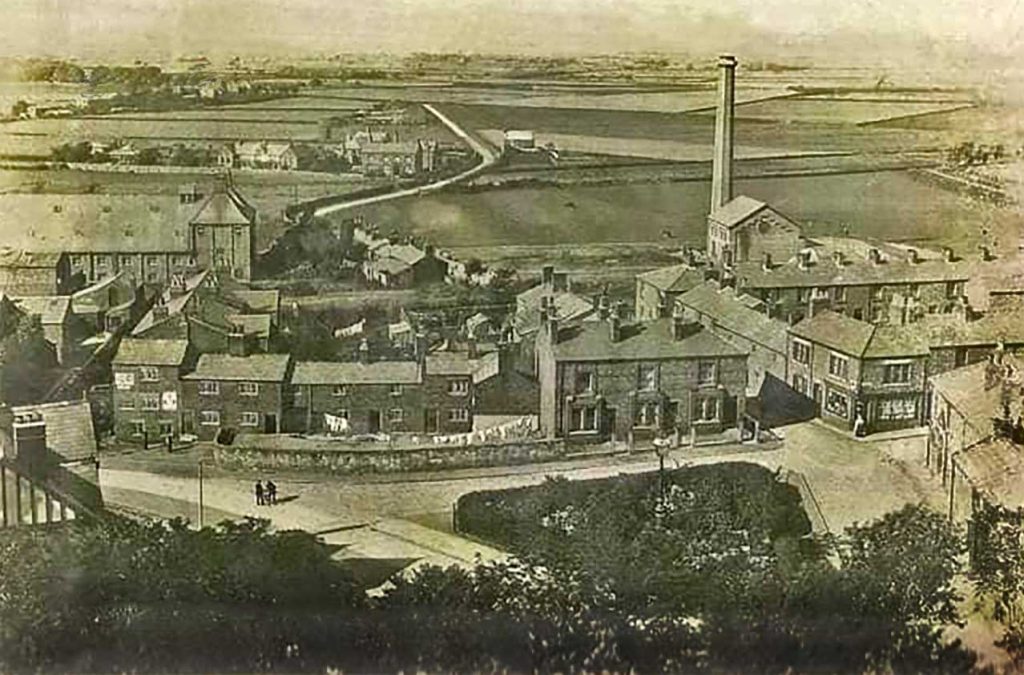For all that the more political aspect of the Great Unrest was struggling to cohere in 1913, workers were still furiously taking direct action against the greed of their bosses in the run-up to World War I – not least in the fields of Lancashire.
The July 1913 issue of Freedom features a lengthy article hooked on a major strike of agricultural workers in Ormskirk, around 12 miles north east of Liverpool, though it focuses more on the surrounding issues of landlordism and the broader weft of agricultural struggle.
Less well-known than the efforts of the National Union in East Anglia, Ormskirk was a rare example for the time of a flat-out victory against the rural ruling class.
The “Lancashire revolt” began in May, as crops in the peat soils approached harvest time. A large workforce of labourers was needed in the fields and, noting how poorly they were paid compared to their urban comrades, they put in a demand for 4 shillings on the basic wage – around a 20% increase – alongside an hourly overtime bonus, and a half-day off on Saturdays.
Bosses failed to take them seriously and by the end of June, a downing of tools was on the cards, beginning on June 23 in time to threaten the entire year’s hay harvest. Unconcerned with the look of the thing, pickets from the 2,000-3,000 strikers used cyclists as scouts to inform them of when a cart was ready to go, then turned up mob-handed to turn back the drivers – or turn over the carts. At least one barn, rather unfortunately, burned to the ground.
The gentry was totally outmatched. During the dispute itself, Liverpool trade unionists offered donations, dockers blocked scabs from being shipped in and the railway workers themselves threatened to black farm produce. Irish labourers, who farm bosses had been relying on to strike break, instead proved themselves staunch union supporters. In the end, only a smattering of local reactionaries went to the fields, where they wilted under a hail of stones. While local elites tried to frame the dispute as being driven by outside interference and did their best to make life unpleasant (including by closing the local pubs, drafting in riot police and shooting at people), they folded within two weeks, agreeing to a 10% increase and all other demands.
The quiet part of this well-organised fight in an unexpected sector was in the help it was getting from elsewhere. Two of the leading organisers, for example, were not agricultural workers at all, but railwaymen, namely George Newman and John Phipps, secretary of the newly-formed Ormskirk NUR. The latter provides a direct link to the syndicalist scene of the time as he was a supporter of influential Hull-based NUR militant George Brown.
~ Rob Ray
The Land and the Labourer
The picture of hard toil and misery endured by the agricultural labourer has been painted for us, since the strike in South-West Lancashire began, by the pens even of the capitalist press, which in such a case will hardly exaggerate the conditions. But even while these pioneers of an agricultural uprising are fighting their hard battle for a mere existence wage, the death of the Duke of Sutherland comes to remind us that we English people of the twentieth century are mad enough to permit a single individual to own 1,300,000 acres of land which should be the birthright of those who could use it for the advantage of us all.
The truth is, the serf and the feudal lord are with us today, however much the iron heel of the old feudal baron may be hidden by the veneer of modern civilisation. It is indeed doubtful whether in 1381 — the year of the peasants’ outbreak under Wat Tyler — there was a lord who could “walk fifty miles in a straight line” calling all the land his own. Yet such is the monstrous condition of things with the Sutherland estates. Imagine Dick Turpin levying blackmail upon all travellers on the turnpike road for fifty miles, and his depredations would be but the work of an innocent abroad compared to this colossal robbery by the Sutherlands.
Was it not Carlyle who said that one of the most useful members, of any society was the man who could plough a straight furrow? Well, these men who – work in the fields to help feed us – are at last thinking it would be not unreasonable if they and their families could taste a little of the good things they produce. Possibly they are a little dissatisfied with the leaky pigsties they inhabit; a little tired of the long hours they toil — in a word they, like so many more of us at the present day, are sighing to enjoy some of life’s gifts that they hear of, or read of, or see before their eyes, but which are held out of their reach. It is time they began to think of themselves.
It is time also that the great body of English trade unionists knew something of the history of landlordism in their own country. Let them turn to Thorold Rogers’s Six Centuries of Work and Wages and they will not wonder how it is we have serfdom today. “There is nothing in the history of civilisation,” says this writer, “more odious than the meanness of some English landlords, except it be their insolence. They have been abetted by the foolish farmers, who ground down their labourers in order to enrich the landlords, and have finally sacrificed themselves to the rent-rolls of profligates and gamblers.” And how has all this happened? Well, until Joseph Arch in 1872 founded the National Agricultural Labourers’ Union, there had not been for three centuries any organisation devoted to the interests of the oppressed farm labourer. On the contrary, he had been neglected, contemned, derided by the townsfolk and in the villages and hamlets where he lived his stunted life. He was a slave to the squire and the parson, without a soul to call his own.
The present strike is one more instance of Labour solidarity, and, win or lose, it is the beginning of a new epoch for the toilers on the land, if only for the fact that the great body of trade unionists is behind them with a full promise of support. Of all who suffer from the curse of the wage system the farm labourer suffers most, and by the very conditions of his life has the least chance of improving his lot by resistance to the slave-drivers who employ him. Most of us do not even realise what he suffers, or has suffered in recent years. Here, for instance, is what Thorold Rogers tells us in his great Work:
“I do not remember, in the very extended study which I have given to the history of agricultural labour and wages during the six centuries for which there is recorded and continuous evidence, that, in the worst experiences of the labourer, he was till very recently open to the risk of having his young children of either sex taken from him, and put under the care of a gangmaster, with a view to their labouring in the fields, being housed for the night in barns, without the pretence of decency, not to say comfort, and apart from the obvious degradation of their condition, exposed to/the coarse brutalities of the manager of children’s labour. But in the Eastern Counties it appears to have been till recently the practice, perhaps still is, for farmers to contract for the services of agricultural gangs—i.e., of crowds of children set to work under an overseer who had hunted them up. The practice, I remember, was defended on the ordinary ground of cheap labour being a necessity for profitable agriculture, which, when it is interpreted, means that tenant farmers are too cowardly to resist rents which they cannot pay except by the degradation of those whom they employ. That a peasantry, underpaid and underfed, should be constrained to submit their children to such an odious and demoralising slavery, is, unhappily, intelligible; that the middleman can be found to undertake the office of such an agency is a fact to be regretted, but expected.; that farmers should allow themselves to employ such an expedient is scandalous; but that they who pretend to consider the condition of the poor, and to be active in the interests of humanity, should be complacent and silent, is a negligence which ought to bring its punishment, or is. an acquiescence in ill-doing which I do not care to characterise.”
Six Centuries of Work and Wages (pp. 511-512)
Such conditions existed in the latter half of the nineteenth century to enable rent to be paid to the great landowners. The landowner is still claiming his pound of flesh, but it seems he may yet be weighed in the balance — and found guilty. So all of us will join in wishing success to the sturdy strikers in Lancashire.
This is part of our series looking back on working class struggle in the early 1910s in the run-up to World War One, through articles found in the Freedom archive.
For more on the background of the Lancashire strike, check out this long read from the North West Labour History Society.
Pic: Ormskirk and surrounding fields from the top of the church, circa 1921








